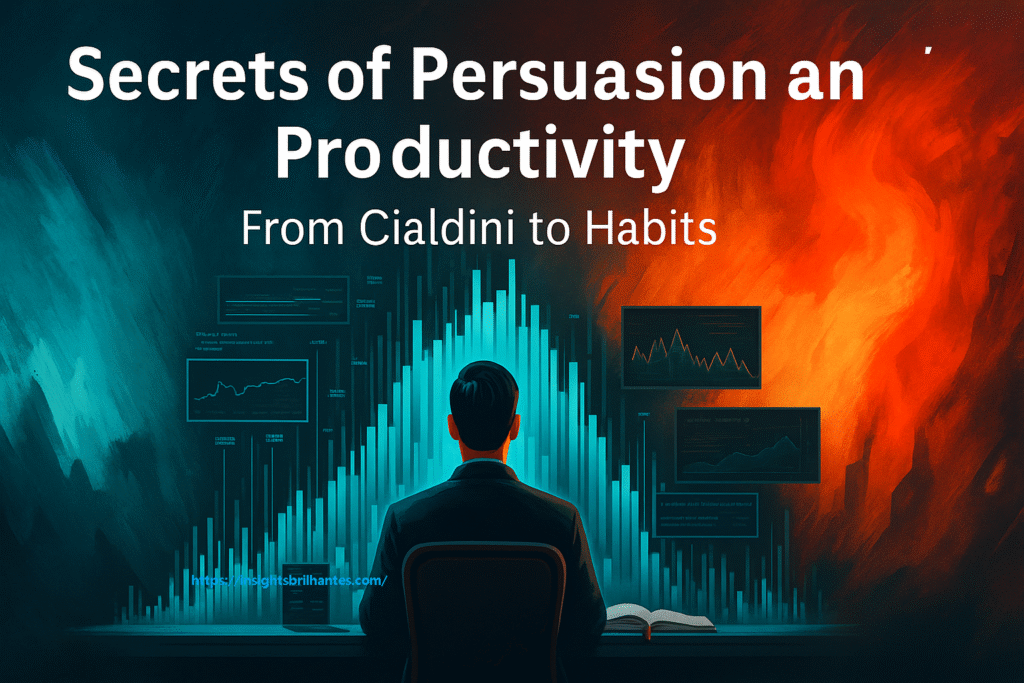Psychology, Strategies, and Real Cases
The financial market is not your enemy. It merely reflects your decisions. For many traders, the true villain is emotion — especially when frustration from a loss triggers dangerous behavior: revenge trading.
In this complete article, you’ll learn how to avoid this destructive cycle and develop a professional mindset. We’ve gathered insights from the best trading psychology books, such as Trading in the Zone and Outwitting the Devil, as well as scientific studies and real stories of transformation.
🧠 What Is Revenge Trading?
Revenge trading occurs when a trader attempts to “get back” at the market after a loss. Instead of acting strategically, they act out of anger — increasing lot size, ignoring their own rules, and putting both capital and mental health at risk.
“It’s like a gambler who, after losing everything on black, bets what they don’t have on red.”
A study from the University of Chicago shows that 78% of amateur traders fall into this cycle at least once a week.
💥 Real Case:
João, a crypto trader, lost $5,000 in a trade. Enraged, he doubled his position on the next one — and lost another $25,000 in just 3 hours.
⚠️ The Three Types of Revenge in Trading
- Financial Revenge
When the trader tries to quickly recover a loss, even without technical confirmation. - Wounded Ego Revenge
Ego wants to “be right.” Even after clear evidence of being wrong, the trader insists. “The market is not your enemy. Your ego is.” – adapted from Napoleon Hill - Boredom or Frustration Revenge
Trading just to feel something, or to avoid missing out, without a clear setup.
🧬 The Neuroscience of Emotional Decision-Making in Trading
Losses activate brain areas associated with fear and anger, such as the amygdala. Dopamine combined with adrenaline creates a false sense of urgency.
Quick Control Technique: The 6-2-6 Rule
- 6 deep breaths
- 2 minutes silently focusing on a fixed object
- 6 minutes away from the screen
This simple break can prevent a catastrophic decision.
✅ How to Know If You’re Revenge Trading
Checklist – Top 5 Emotional Triggers:
- Got stopped out and feel angry?
- Lost three trades in a row and feel the urge to win one?
- Saw other traders making money while you’re losing?
- Frustrated for not trading in hours?
- Feel the need to prove something to yourself?
If you answered “yes” to two or more — stop now.
🪞 Mirror Exercise:
After a loss, say aloud:
“I’m angry because ____. Instead of retaliating, I will ____.”
📓 Trading Journal: Your Emotional Lifesaver
Keeping a trading journal helps reveal emotional patterns. Record:
- What you felt before, during, and after the trade
- Why you entered the trade
- What you would do differently next time
🔍 Case Study: A trader reduced emotional losses by 70% after 60 days of journaling.
💸 Risk Management: The Shield Against Emotional Decisions
Professional traders follow a golden rule:
Never risk more than 1% of your account per trade.
Simple risk formula:
javaCopiarEditarAllowed risk = 1% of account
Stop loss = number of points
Position size = allowed risk / stop loss
This discipline protects both your capital and your mind.
🧠 Long-Term Mindset Based on Napoleon Hill
Hill wrote:
“Failure is only a lesson in disguise.”
Replace anger with analysis. Replace ego with strategy.
Exercise:
Rewrite your trading story on paper — highlight lessons, patterns, and goals.
📈 Real Success Stories
✍️ Case 1 – From Deep Loss to Growth:
Lucas lost $20,000 in one month. He studied emotional control, created a journal, and limited risk. One year later, he had profited $150,000 with consistency.
✍️ Case 2 – From Angry Trader to Fund Manager:
André used to trade with anger. Today, with a professional mindset, he’s a hedge fund manager and mentor.
🧘 Focus and Clarity Techniques for Traders
🔹 4-7-8 Breathing
- Inhale for 4 seconds
- Hold for 7 seconds
- Exhale for 8 seconds
Use this before every trade.
🔹 Visualization
Visualize the perfect trade: entry, exit, and how you’ll emotionally react. Top athletes and traders use this.
🔄 Turning Revenge into Wisdom
Revenge trading is like fighting your own reflection — you always end up hurt.
“The market doesn’t hate you. You’re sabotaging yourself.”
Transform anger into discipline. Every loss can be a seed for your next win — if you allow it.
🧠 Powerful Quotes to Internalize
“If you don’t control your emotions, the market will.”
“There are no losing trades — only lessons.”
“Patience is the secret weapon of consistent traders.”
✅ Final Thoughts: Be a Professional, Not an Emotional Gambler
If you want to be consistent, start with emotional discipline. This article is your map to identify destructive patterns and replace them with strategic behavior.
👉 Apply at least one technique today. Write. Breathe. Pause. Restart.
You’re not in the market to prove yourself. You’re here to grow.



